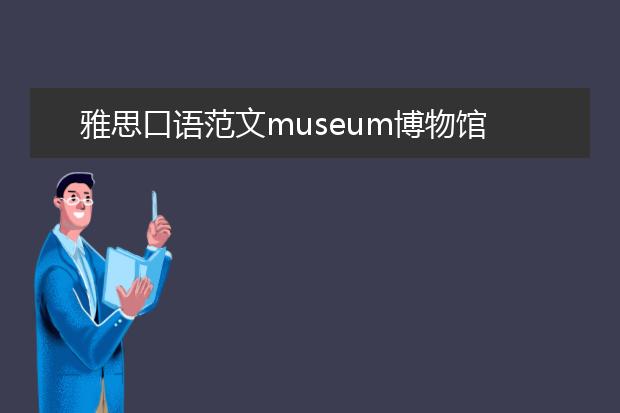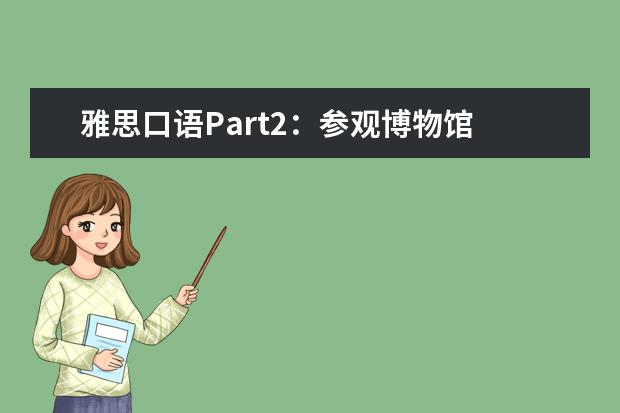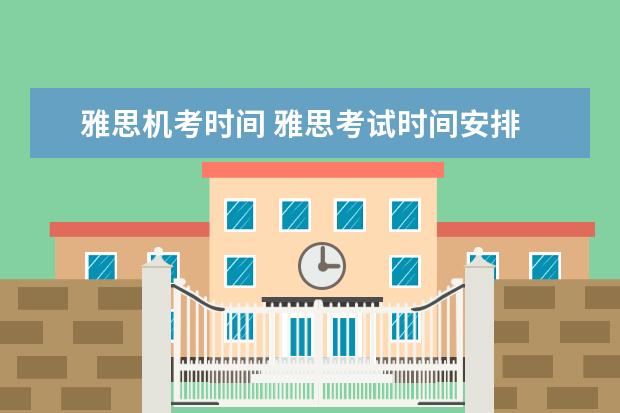- Are there many (or, any) museums in your hometown?
- Do you think museums are useful for visitors to your hometown/country?
- Do you often visit a museum?
- Did you go to any museums when you were a child?
- When was the last time you visited a museum?
- Do you think museums are important?
- Do you think it’s suitable for museums to sell things to visitors?
There are a lot of museums in Nanjing because Nanjing has a central place in the history of China. It allows the local residents to know more about their traditions and historical celebrities.
南京有很多博物馆,因为南京在中国历史上占有中心地位。它让当地居民了解更多他们的传统和历史名人。
I go to the museums a lot, when I go to a new place, I’ll find the local museums that have interesting features. The museum I visited last time was the Guanfu Museum located in the rural area of Beijing. It is a private-owned museum featuring Chinese antiques like porcelain, furniture, jade and some paintings.
我经常去博物馆,当我去一个新的地方,我会发现当地的博物馆有有趣的特点。我上次参观的博物馆是位于北京郊区的官府博物馆。这是一个私人拥有的博物馆,以中国古董为特色,如瓷器、家具、玉器和一些绘画。
Museums are really important in protecting, preserving, propagating and researching numerous human treasures. Once the antiques are in museums, they are permanently out of circulation, which means the public can see them.
博物馆在保护、保存、传播和研究众多人类珍宝方面非常重要。一旦这些古董进入博物馆,它们就永远不再流通,这意味着公众可以看到它们。
Yes, the reason is that generally, most museums are non-profit organisations, and these goods make up a large part of their income, except for the tickets of course, and also partly because these items are closely related to the theme of the museums, which cannot be bought in other bookstores or shops.
是的,一般的原因是,大部分博物馆都是非营利组织,而这些产品占他们收入的很大一部分,当然除了机票,还有部分原因是这些项目密切相关的主题博物馆,无法在其他书店*或商店。



 2021年1-4月 雅思口语 Part 1 Topic 30 博物馆 Museum
2021年1-4月 雅思口语 Part 1 Topic 30 博物馆 Museum
 雅思口语范文museum博物馆
雅思口语范文museum博物馆
 雅思口语Part2:参观博物馆 Describe a museum that you have visited
雅思口语Part2:参观博物馆 Describe a museum that you have visited
 2021年5月雅思口语题part1:Museum
2021年5月雅思口语题part1:Museum
 2021年1-4月雅思口语题库完整版part1:Museum
2021年1-4月雅思口语题库完整版part1:Museum
 2021年5月雅思口语题part1:Museum
2021年5月雅思口语题part1:Museum
 2021年1-4月雅思口语题库完整版part1:Museum
2021年1-4月雅思口语题库完整版part1:Museum
 2021年1-4月雅思口语part1新题:Museum
2021年1-4月雅思口语part1新题:Museum
 2021年1-4月雅思口语题库part1:Museum
2021年1-4月雅思口语题库part1:Museum
 2021年1-4月雅思口语新题:Museum
2021年1-4月雅思口语新题:Museum
 山东雅思备考:雅思口语扣分点有哪些
山东雅思备考:雅思口语扣分点有哪些  雅思口语备考新题答案解析:向某人作出承诺
雅思口语备考新题答案解析:向某人作出承诺  雅思口语范文:如何准备雅思口语part1
雅思口语范文:如何准备雅思口语part1  一般雅思口语考试时间多久 雅思口语考试相关
一般雅思口语考试时间多久 雅思口语考试相关  掌握正确的雅思口语语法的重要性有哪些?
掌握正确的雅思口语语法的重要性有哪些?  2023年8月29日上海对外经贸大学考点雅...
2023年8月29日上海对外经贸大学考点雅...
 雅思是美式英语还是英式英语? 雅思考试是考...
雅思是美式英语还是英式英语? 雅思考试是考...
 雅思口语描述礼物的词语 有哪些...
雅思口语描述礼物的词语 有哪些...
 雅思机考时间 雅思考试时间安排...
雅思机考时间 雅思考试时间安排...
 雅思口语part2部分有哪些注意事项?...
雅思口语part2部分有哪些注意事项?...